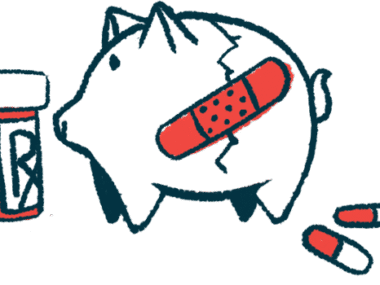Cour’s CNP-104 granted FDA orphan drug status for treating PBC
Designation follows positive top-line data from proof-of-concept study
Written by |

The U.S. Food and Drug Administration (FDA) has granted orphan drug status to CNP-104, Cour Pharmaceuticals’ treatment candidate for primary biliary cholangitis (PBC).
This designation incentivizes the development of therapies for rare diseases — in the U.S., conditions affecting less than 200,000 people — for which there might not otherwise be an economic incentive to do so. The benefits of orphan drug status include tax credits, exemption from certain fees, and seven years of market exclusivity should the treatment ultimately be approved.
For CNP-104, orphan drug status followed promising top-line data from an proof-of-concept Phase 2a clinical trial (NCT05104853) being conducted in the U.S. These results showed that the experimental treatment safely and effectively lessened liver scarring in PBC patients.
“Receiving orphan drug designation for CNP-104 underscores its potential to become the first disease-modifying treatment for individuals with PBC,” Dannielle Appelhans, president and CEO of Cour, said in a company press release.
The therapy previously was granted the FDA’s fast track designation for PBC. That status, awarded in 2022, makes CNP-104 eligible for accelerated approval and priority review if specific criteria are met.
Accelerated approval allows experimental therapies to be marketed based on preliminary clinical trial data suggesting they fulfill an unmet medical need, with full approval dependent on additional trial findings confirming their safety and efficacy. Priority review shortens the review process to six months from the standard 10 months.
Orphan drug status follows earlier FDA fast track designation
PBC, a rare liver disease, is characterized by chronic cholangitis, a condition marked by ongoing inflammation in the series of ducts that carry the digestive fluid bile out of the liver and to the intestines.
This bile duct inflammation can result in bile duct narrowing and cholestasis, or slowed bile flow, which can make bile accumulate to toxic levels in the liver. Such accumulation can cause scarring, or fibrosis, and serious liver damage.
The first-line treatment for PBC is ursodeoxycholic acid, known as UCDA. Often given alongside second-line therapies such as Iqirvo (elafibranor) and Livdelzi (seladelpar), such treatment aims to reduce symptoms of PBC by increasing bile flow. However, these therapies neither work for all patients nor directly address the underlying cause of PBC.
PBC is considered to be an autoimmune disease — one occurring when the body’s immune system mistakenly attacks healthy cells in or around bile ducts. Nearly all PBC patients have self-reactive antibodies against the E2 component of a group of mitochondrial enzymes called the pyruvate dehydrogenase complex, or PDC-E2. Mitochondria are the powerhouses of cells.
CNP-104 works by helping the immune system learn how to tolerate, or recognize and leave alone, the PDC-E2. This in turn is expected to ease bile duct inflammation and prevent further liver damage.
The therapy is made of nanoparticles containing PDC-E2 that are designed to be taken up by certain immune cells. This ultimately results in the presentation of PDC-E2 to T-cells, a type of immune cell known to drive autoimmune attacks, in the absence of inflammatory signals, which trains the cells to perceive the molecule as self.
When these cells travel to the bile ducts or nearby tissues, they then suppress the abnormal immune responses against PDC-E2.
Cour now seeking to advance CNP-104 in clinic
The ongoing Phase 2a trial, launched in 2022 and now involving 19 study sites across the country, enrolled 41 adults with PBC who were unresponsive to standard treatment. The participants received into-the-vein, or intravenous, infusions of either 4 or 8 mg/kg of CNP-104 or a placebo one week apart, on days 1 and 8.
After the study’s primary period of 120 days, or approximately four months, the researchers found that CNP-104 slowed disease progression relative to the placebo, as reflected by a significantly greater reduction in liver stiffness, a marker of liver fibrosis.
In addition to demonstrating favorable T cell responses among treated participants, CNP-104 slowed disease progression, as evidenced by a statistically significant reduction in liver stiffness.
The positive top-line data also showed that patients had a favorable T-cell response, suggesting the therapy was helping the body create immune tolerance.
As part of the trial, patients will continue to be monitored for slightly longer than 1.5 years to ensure the therapy is safe.
“In addition to demonstrating favorable T cell responses among treated participants, CNP-104 slowed disease progression, as evidenced by a statistically significant reduction in liver stiffness,” Appelhans said. “We are now collaborating with our distinguished clinical advisors and key opinion leaders to advance CNP-104 to the next phase of clinical development.”




